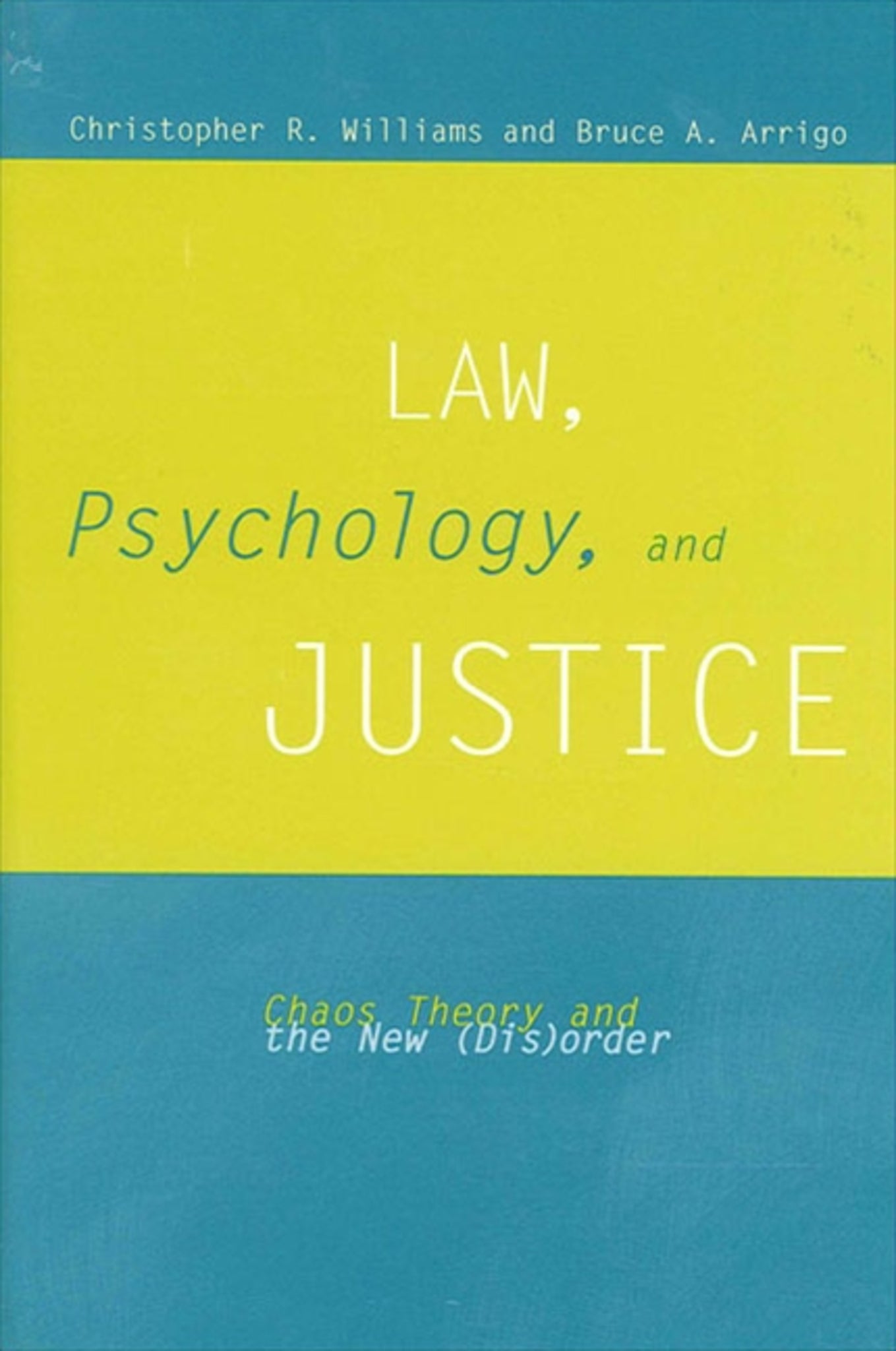We're sorry. An error has occurred
Please cancel or retry.
Law, Psychology, and Justice

Some error occured while loading the Quick View. Please close the Quick View and try reloading the page.
Couldn't load pickup availability
- Format:
-
01 November 2001

A provocative critique of the relationship between the legal system and psychology that uses chaos theory to offer a more humane alternative.
Law, Psychology, and Justice charts a new and provocative direction in the area of mental health and justice studies. Relying on the science of chaos theory, the authors provide a series of compelling, clear, and concise arguments for why many of our current forensic psychology practices have failed, producing, in their wake, "illness politics." In addition, the authors explain how the interests of psychiatric citizens and the social well-being of society can be reconciled at the law-psychology divide, particularly when chaos (i.e., a mix of order and disorder) is embraced as an integral and natural, rather than disruptive and unhealthy, feature of living humanely with others. Case law illustrations are used throughout the book, grounding the more theoretically animated arguments. Issues such as the insanity defense, involuntary commitment, the right to refuse treatment, and the criteria for assessing whether a person is dangerous to self or others are discussed.


"This book extends the work of Szasz, Monahan, Scheff, and other notable theorists, while making the conceptual framework of chaos theory accessible to social scientists. Further, Williams and Arrigo raise important ethical issues by describing the flawed older positivistic paradigm which still dominates theory, practice, and research in the social sciences." — Shela Van Ness, University of Tennessee at Chattanooga
"This book is an instant reference work for scholars, members of the legal or medical professions, and students studying law or mental health issues. It fills a void in the literature of mental health and psychiatry by providing a seminal analysis." — Lloyd Klein, Louisiana State University-Shreveport
Acknowledgments
Introduction: The Theoretical, the Controversial, and the Just(ice)
PART ONE: The Theoretical
1. Delineating (Dis)order, Defining Chaos
2. Postmodern Law, Crime, and (Dis)order: On the Limits of Modern Theory and Knowledge
3. The Principles of Chaos Theory
PART TWO: The Controversial
4. The Meaning of Mental Illness
5. Dangerousness and Its Prediction
6. Civil Commitment
7. The Right to Refuse Mental Health Treatment
PART THREE: The Just(ice)
8. (Un)clear but Convincing Evidence: A Case Study
9. Conclusion: Law, Psychology, and Justice
References
About the Authors
Index



